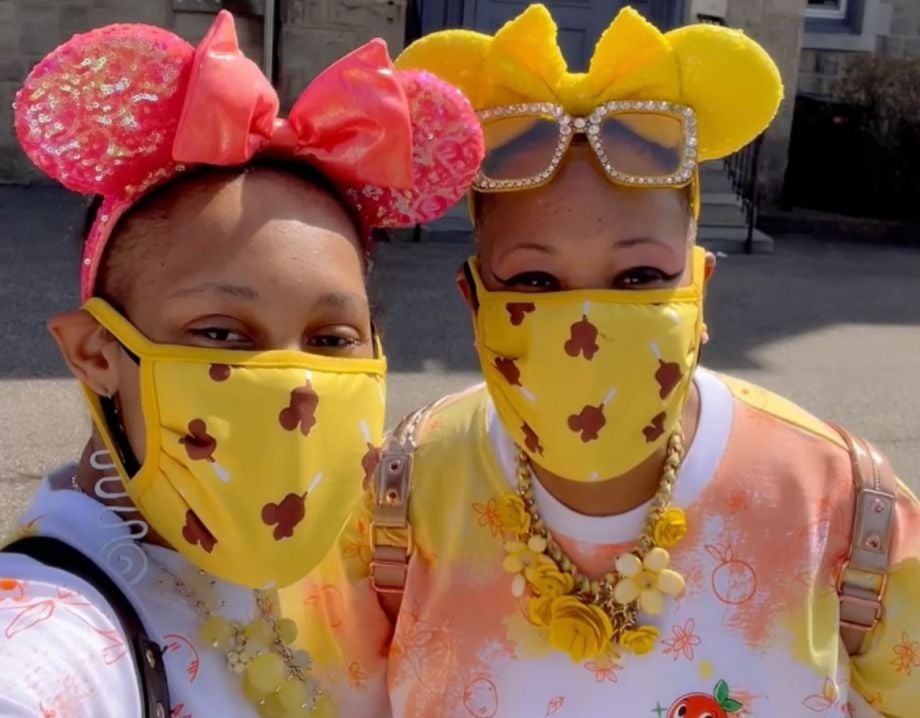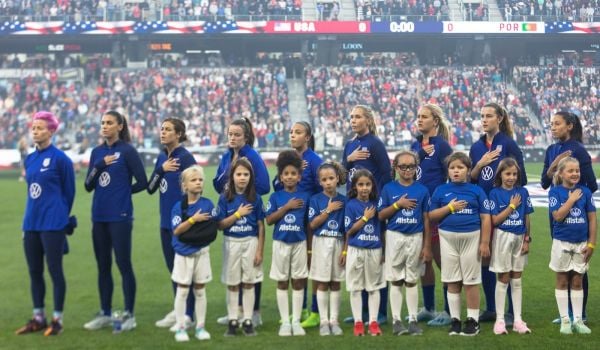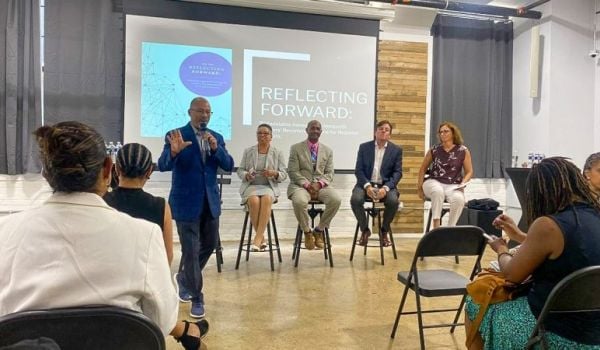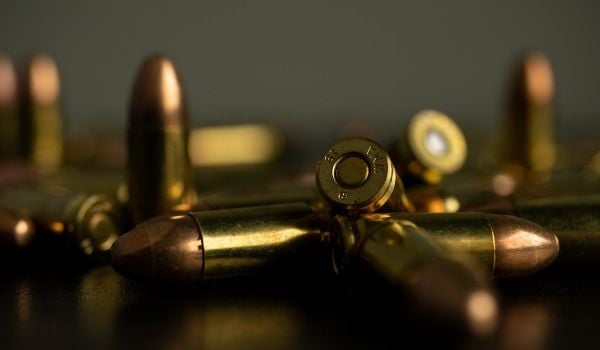Lynette Medley and her daughter, Nya McGlone, weren’t planning to open the nation’s first hub for free menstrual products. In 2012 Medley founded a nonprofit, No More Secrets: Mind, Body, Spirit, as a sexuality awareness and consultative organization. Her work covered topics like consent, bodily autonomy and navigating healthy relationships.
“We weren’t a period organization or this menstrual movement,” Medley explains. But many young women Medley worked with couldn’t afford menstrual products and resorted to stealing, engaging in sexual favors and unsafe medical methods to deal with their cycles. “Through these conversations I started really asking them about their experiences and what they needed.”
That resulted in mass distribution of free period products through No More Secrets — the organization helped give out 1.9 million menstrual products in 2020 — and the opening of The SPOT hub in Germantown, Philadelphia, this February. Beyond a brick-and-mortar distribution hub, The SPOT serves as a community and educational space designed for marginalized women and girls.
Once Medley realized the high need for menstrual products, she quickly found there were no existing resources. “Menstrual products are not covered by Medicaid or Medicare,” she says, “And there were no resources in Philadelphia or the immediate tri-state area to be able to deal with this crisis and give free products to our communities.”
In 2015, Medley and McGlone began a menstrual product bank out of Medley’s office. They supplied the products out of pocket and delivered them door-to-door, at night to ensure the privacy of their clients. Things changed when McGlone started social media accounts detailing their work: Community donations poured in, demand for products increased and the women became increasingly well-known in the community for their work.
Not everyone could reach Medley’s office to pick up supplies, so in 2016, she and McGlone started a delivery service. Prior to COVID-19, they averaged 85 deliveries a week.
The pair also forged partnerships across the city, bringing the issues of period poverty to light and bolstering other community care work. “I found Lynette through Instagram … I hit up her DMs, she answered me, and within a week we had a meeting,” says Charlene Heeney, the community involvement specialist for Health Federation of Philadelphia who runs the organization’s personal care pantry. Heeney was struggling to meet the demand for period products. After she met with Medley, her entire Jeep was filled with tampons and pads.
COVID-19 greatly exacerbated the need for menstrual products. “No one had thought about the lack of access to all the resources people might have, from schools, community centers, camps and nurses — everything went virtual and the community were left to their own devices,” notes Medley.
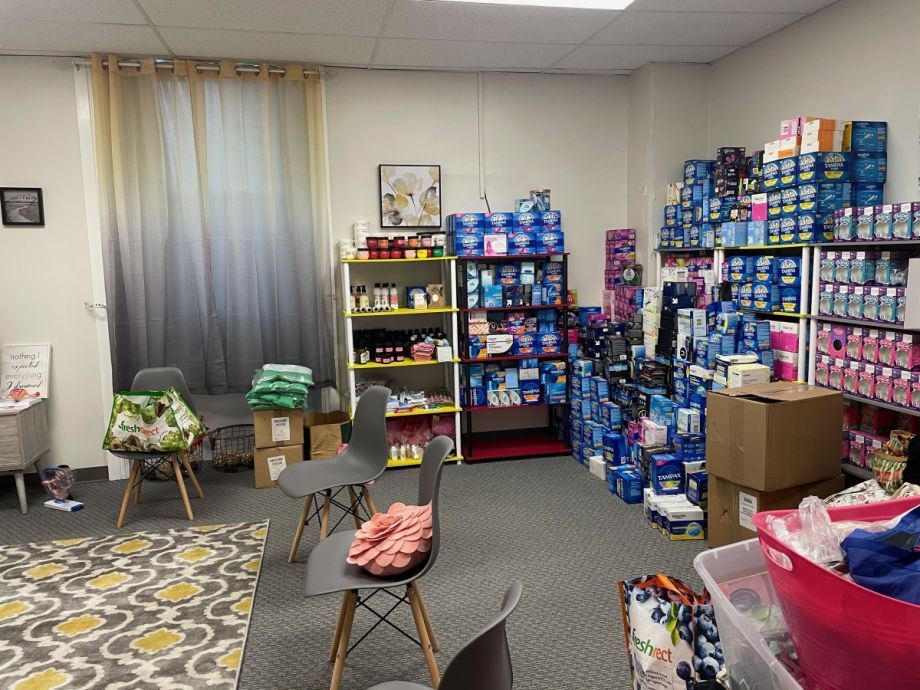
(Photo courtesy The SPOT)
No More Secrets’ pandemic deliveries increased to roughly 275 a week. Medley and McGlone also addressed needs beyond menstrual products: providing phone and internet access from their car and driving people who depended on public restrooms to other available facilities. “We said to ourselves, we need to open up a hub, we need to open up a safe space to address menstrual care, uterine care and menstrual hygiene during a pandemic when no one believes in the issue,” Medley says.
They started a GoFundMe last October, raising $24,000 to open what Medley believes to be the first menstrual hub in the country. (The fundraiser has now raised $75,000.) The SPOT, which stands for Safety Programming for Optimal Transformation, spans 2,500 square feet and offers much more than free menstrual and hygiene products. There’s office space for Medley to practice counseling and McGlone to focus on education, a computer room and clean water and bathroom access.
The Breonna Taylor Safe Space room is the hub’s “epicenter for education,” as Medley puts it, for “all of our talks, education and awareness work.” It includes a television and two futons for guests to relax, or even nap, while they’re waiting for services. (That room was funded by a $5,000 grant from DivaCares, the social-impact program of the makers of DivaCup, which is also donating 200 reusable DivaCups every month to the hub.)
Medley and McGlone continue their delivery service as needed, given that they have homebound clients and people with limited access to transportation. But they’re excited by the impact of a brick-and-mortar hub. Classes like “Oh My God Period” and “Sister Talk Self Care Sundays” have been at capacity. “People come all day, on the days we’re open, and they’re learning about all the fluidity of menstrual care,” Medley says, noting that many clients know about pads and tampons but not options like menstrual cups and reusable pads. “We see about 25 to 30 people in a day.”
Medley sees The SPOT as a particularly important resource for marginalized populations with less access to the formal healthcare system. “Half of the population I serve have never went to a gynecologist, they’re under-insured or uninsured,” Medley notes. The SPOT provides a safe, accessible space where she can refer them to medical care if needed. “They’re coming to me because I’ve put this footprint in for six years.”
By building out a standalone community resource, her hope is that it serves as a model for satellite locations serving an even larger swath of women cut off from this care. “We have an untapped community,” Medley stresses, “that needs these resources.”

Emily Nonko is a social justice and solutions-oriented reporter based in Brooklyn, New York. She covers a range of topics for Next City, including arts and culture, housing, movement building and transit.
Follow Emily .(JavaScript must be enabled to view this email address)

